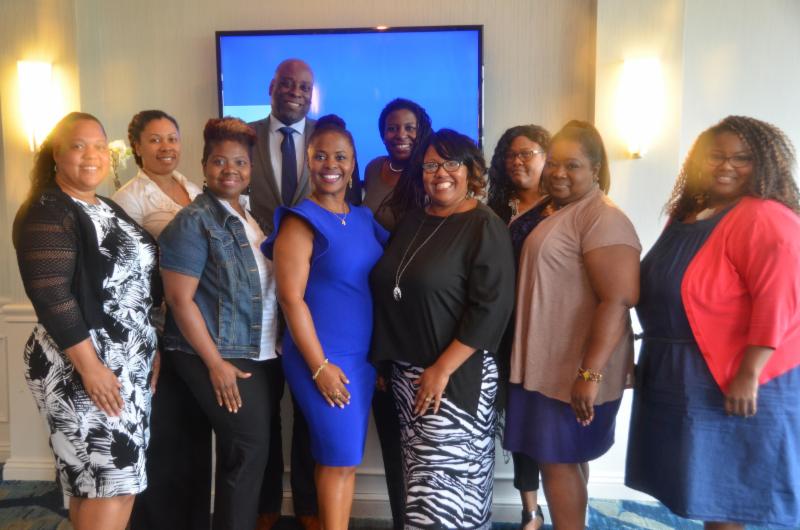Greetings, Eagle! When you think about your self-care, does it include your communications? How often do you think about that gnawing situation that you have not addressed? Or the feelings that arise when you even THINK about saying “no” to someone? Communicating effectively is indescribably important to me and is something others expect from me. It explains, in part, the commitment I have to helping others use their voices more effectively. Part of my radical self-care routine is speaking the truth in love, even when it is uncomfortable. I know individuals who have suffered physically and emotionally because they swallowed what they knew needed to be said. Having a conversation was more daunting than making their well-being a priority. I have seen organizations experience costly outcomes and public relations nightmares because they delayed or avoided addressing inappropriate situations. The resulting culture was created one person at a time. We see it in the news more often than ever before. Whether it is individual or organizational care, saying what needs to be said in a direct (what you say and not simply about style), concise and effective manner is critical to one’s health. That health shapes the experiences others expect (the brand) and their willingness to engage. What do your communications say about you? What is it that you need to have a conversation about? LaFern |
| Let’s Talk About It |
Practical Insight
What comes to mind when you hear anything related to self-care? Do you think about exercising, eating nutritious meals and getting plenty of sleep? Hopefully, your vision for your well-being does not end there. Don’t get me wrong — being active, eating to live and ensuring you are well-rested is extremely important. They make up the foundation for optimal health but it includes other building blocks:
- Who you surround yourself with;
- How you think;
- How much and the type of media you consume;
- How well you protect your time and space;
- What you tolerate; and
- How you communicate, including what you say “yes” and “no” to.
Those are key building blocks that help shape the promises you make and the experiences others come to expect from you – your brand.
Having honest, direct and timely communications is critical to your self-care, leadership and shaping what you are known for.
Powerful Impact
Most people who know me see a strong, confident person who communicates with relative ease in both comfortable and uncomfortable situations. For the most part, that is true. However, asking for what I need, effectively addressing difficult situations when they arise and communicating directly with others – especially those who are closest to me – is not always comfortable. It is necessary.
I can recall situations (before I fully embraced having critical conversations as part of my self-care) when I swallowed my thoughts rather than deal with challenging circumstances. Would the other person not receive my feedback well? Could I ensure my emotions would not lead to a confrontation versus a critical conversation? The thoughts that I had, similar to what you might have experienced, is that if I ignored it, maybe it would go away or time would minimize its impact. The truth is that my silence was viewed as acceptance or agreement and I would find myself in a similar situation again. Not saying what needed to be said caused physical discomfort fueled by unnecessary stress.
Answer these questions for yourself:
- How comfortable are you with having honest and direct conversations?
- When it comes to your communications, what do others expect from you?
- What is your biggest obstacle to being a more effective communicator?
You cannot always predict when the need for a critical conversation will arise but you can certainly be equipped and prepared to effectively navigate it when it does. The IDEAL communications model provides a framework to help you consistently engage with excellence:
- Identify the real problem (even if you only admit this to yourself)
- Describe the problem by painting the picture with words (“Not meeting these commitments puts our clients relationships at risk.”)
- Express yourself clearly without minimizing or exaggerating (Use “I” phrases vs. “you” phrases – “When commitments are not met, I am left carrying the load and scrambling to meet deadlines.”)
- Ask for the other person’s perspective (“What is going on?”, “What do you need from me?”); ask for a reasonable change (“I would like to meet weekly to receive status updates. If there are any obstacles that are going to interfere with the schedule, I would like to know immediately.”)
- List and talk about the positive outcomes if you both do what was discussed. (“Our customers will be satisfied and return to us because we always deliver what we promise. With weekly meetings, I will have enough room to adjust the workload without rushing at the last minute and I can also provide support and guidance in the areas needed.)
In Other Words
“Raise your words, not your voice. It is rain that grows flowers, not thunder.” ~Rumi
Lifelong Learning
Everyone Communicates, Few Connect: What the Most Effective People Do Differently (John Maxwell)
[/fusion_text][/fusion_builder_column][/fusion_builder_row][/fusion_builder_container]








Leave A Comment